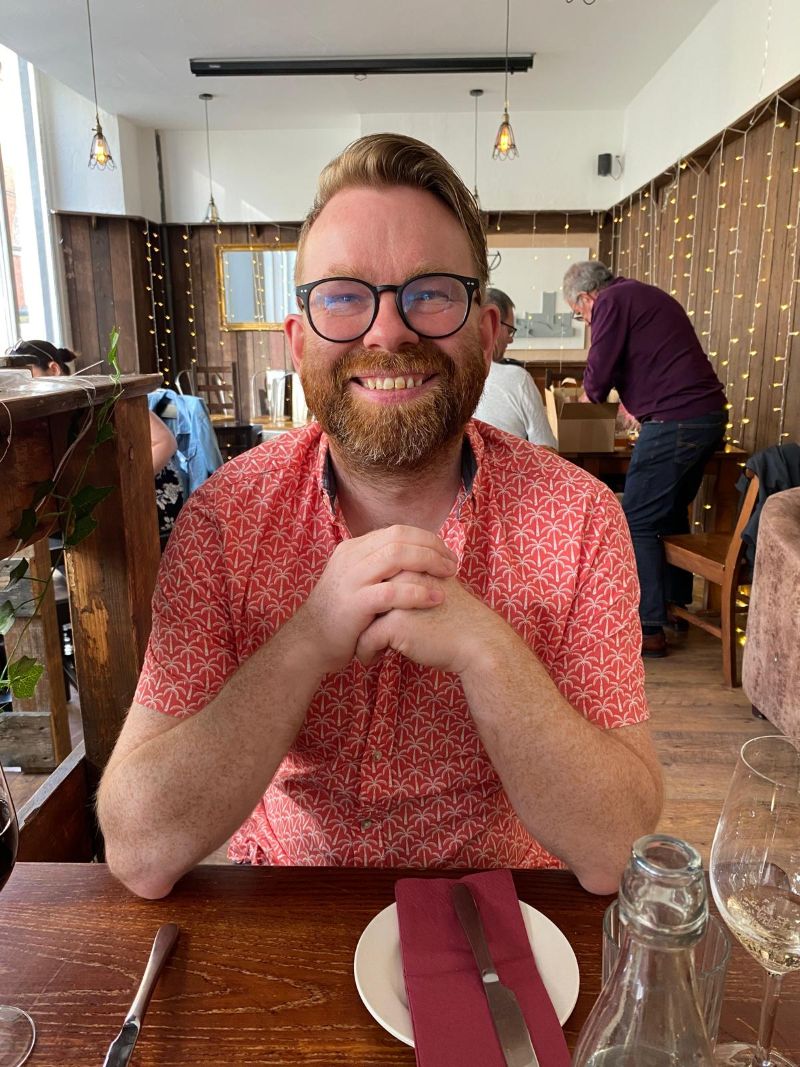Preparing for the Future: Developing my Networking Skills
Posted on: 1 October 2025 by Dr Andrew Moran (Number of words: 500; Read time: 2 minutes 30 seconds) in Blog posts

Dr Andrew Moran reflects on the importance of developing networking skills for his future career and how attending an online Networking and Profile Building Course run by 15 HEIs, including the University of Liverpool, has helped him.
I am a postdoctoral research associate in the laboratory of Prof. Shirazi-Beechey. We currently reside within IVES, and our interests are in sweet-taste detection in the gut and its influence on the regulation of glucose absorption. As a comparative physiologist, I am interested in the physiology of numerous species, ranging from domesticated farm animals and farmed fish to humans. I intend to submit a fellowship application to the BBSRC next year, as the first step in career planning.
As part of this, I have recently been evaluating my strengths and weaknesses. One area I am eager to develop is my networking skills. Recently, I attended the Networking and Profile Building Course hosted by Queen Mary University of London. This was delivered collaboratively by the 15 higher education institutions involved. The programme consisted of six modules, which were delivered online over three consecutive Mondays. I was one of approximately fifty post-doctoral fellows and early-career researchers in attendance. The modules were: 1) Introduction to the Principles of Networking, 2) Building Confidence to Network and Taking First Steps, 3) Collaboration and Partnering, 4) Practical Network Exercises, 5) Social Media for Networking, and 6) Building your Profile.
If, like me, networking is one of those things that fills you with dread, then this is the course for you. The course encouraged me to think about my network and connections in a different way. I now consider a much more strategic plan. Ultimately, the golden nugget of knowledge I have taken away from this course is that your network is dynamic and will naturally develop along with your priorities.
 Logos of the the 15 HEI that participated in the Networking and Profile Building course.
Logos of the the 15 HEI that participated in the Networking and Profile Building course.
One of the initial tasks was to outline our current network, then recognise any gaps and finally to interrogate ourselves about who we would like to include in our network. This is a concept I hadn’t previously considered, and it certainly is food for thought. The LinkedIn module was both interesting and useful, with practical tips on how to improve the visibility of your profile and “dos and don’ts” on using the site to ensure that you are viewed professionally. The module on collaboration and partnering was also enlightening, with pertinent advice on setting up collaborations and the pitfalls that researchers can find when doing so. As someone who is on the cusp of embarking on my own research path, this was revelatory. The presenters shared tips for improving our networking experiences through exercises set up in breakout rooms. These provided opportunities to try out and improve our skills in a friendly and safe environment. The activities ranged from simple introductions, distilling our research down into two minutes and forming groups to synthesise ideas for grant applications. After one session, which was set like speed-dating for research ideas, I was both exhausted and exhilarated.
I highly recommend the Networking and Profile Building Course to any postdoctoral researchers wishing to better their networking skills. My time on the training course was both valuable and personally rewarding, and I look forward to putting my new skills into practice.
Details of the Networking and Profile Building course and next dates are available here: https://www.qmul.ac.uk/queenmaryacademy/postdocs-pis/courses/networking-and-profile-building/
Dr Andrew William Moran is a postdoc in the Institute of Infection, Veterinary and Ecological Sciences (IVES), with interests in gastrointestinal physiology, nutrient sensing and absorption. He is also a core member of the IVES postdoc society.
Keywords: Confidence, Organisation, Researchers, Research Staff Association, The Academy.